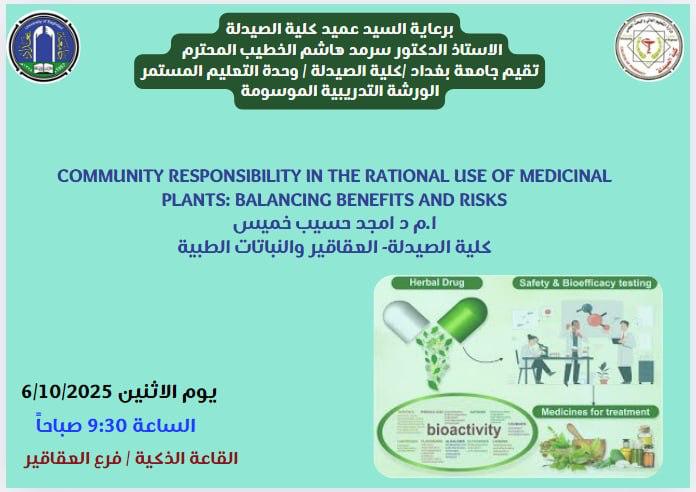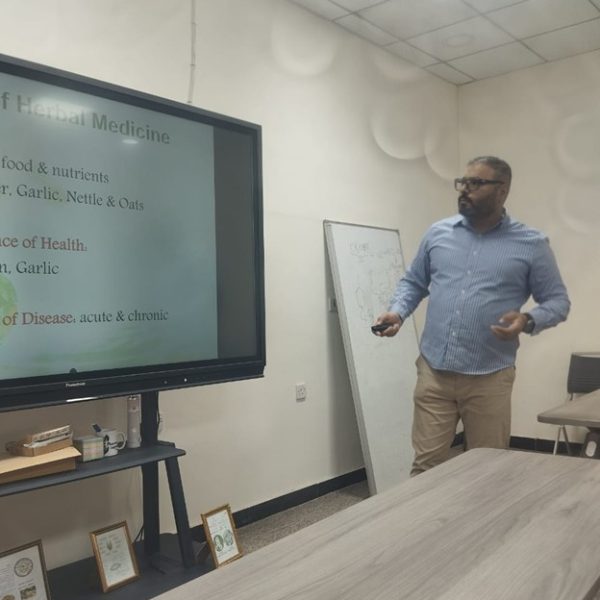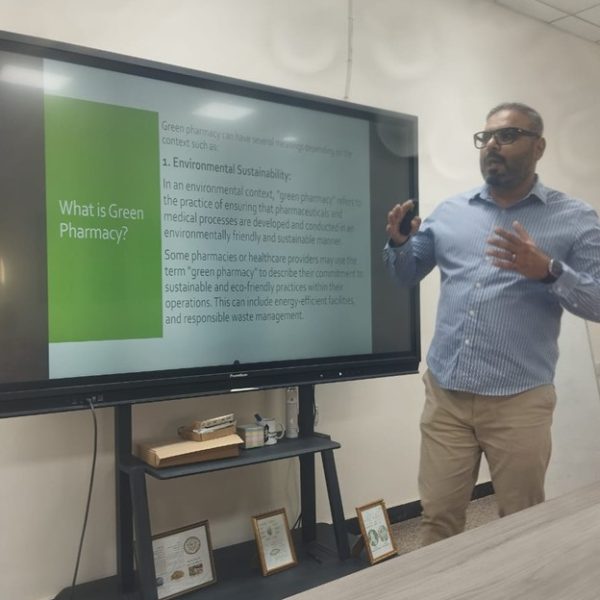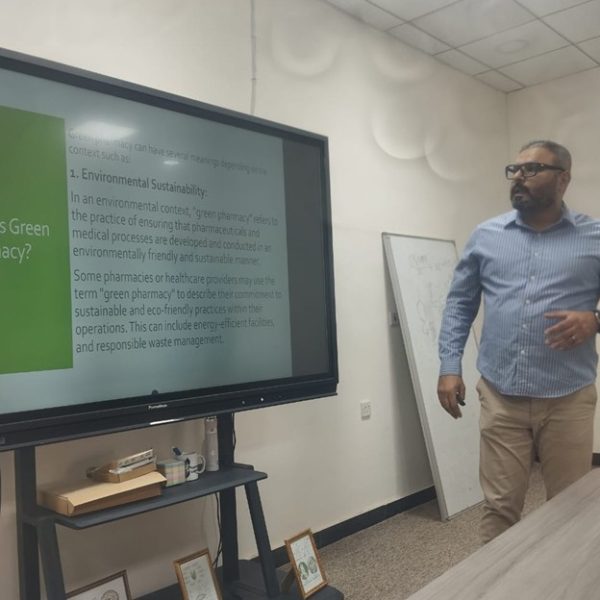Under the supervision of the Dean of the College of Pharmacy, Professor Dr. Sarmed H. Kathem Alkhateeb, the Continuing Education Unit at the University of Baghdad/College of Pharmacy held an in-person workshop entitled “Community Responsibility in the Rational Use of Medicinal Plants”, delivered by Assistant Professor Dr. Amjed Haseeb Khamees, a faculty member at the Pharmacognosy and Medicinal Plants Department.
The workshop aimed to raise awareness about the rational use of medicinal plants by highlighting the risks associated with the indiscriminate or excessive consumption of herbal products sold in local markets, or use based on unscientific advice.
The workshop included several topics, including an introduction to the history of medicinal plant use across ancient civilizations, from Sumerian and Pharaonic Egypt to modern folk medicine. Also, some of the common plants in the Iraqi market, such as ginger, cloves, black cumin, thyme, and chamomile, were addressed, explaining their scientifically proven benefits and potential side effects from misuse. Furthermore, the workshop included a scientific discussion addressing some common misconceptions, such as the belief that everything natural is safe or can replace modern medicine, pointing out that such misconceptions can lead to serious health consequences, especially for patients with chronic illnesses. In addition, the workshop addressed the regulatory and legal aspects of herbal product distribution in Iraq, highlighting the role of the Ministry of Health and regulatory bodies in registering herbal preparations, and emphasizing the role of the academic sector in raising public awareness, as well as the importance of its collaboration with the health sector to establish clear regulations that ensure product safety.
The workshop concluded that it’s necessary to spread community awareness regarding the rational use of medicinal plants through organized media and health campaigns, and urging pharmacists to provide evidence-based advice to patients regarding herbal products. Also, it emphasized the need for strengthening the cooperation between pharmaceutical colleges, health departments, and media institutions to achieve health awareness goals.





